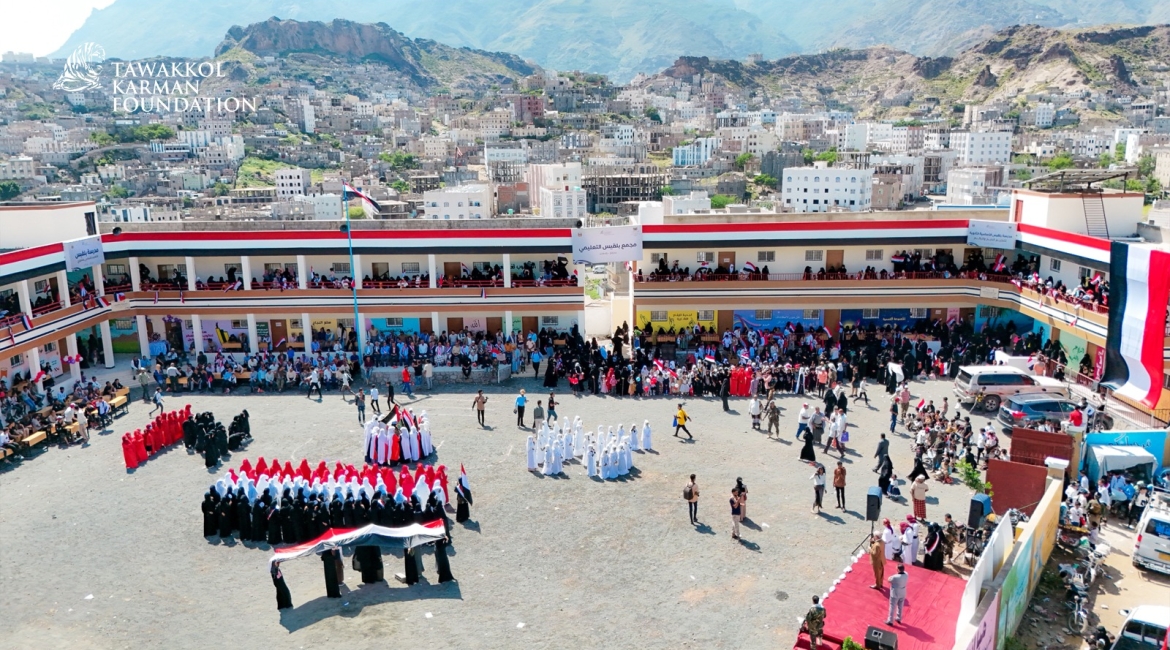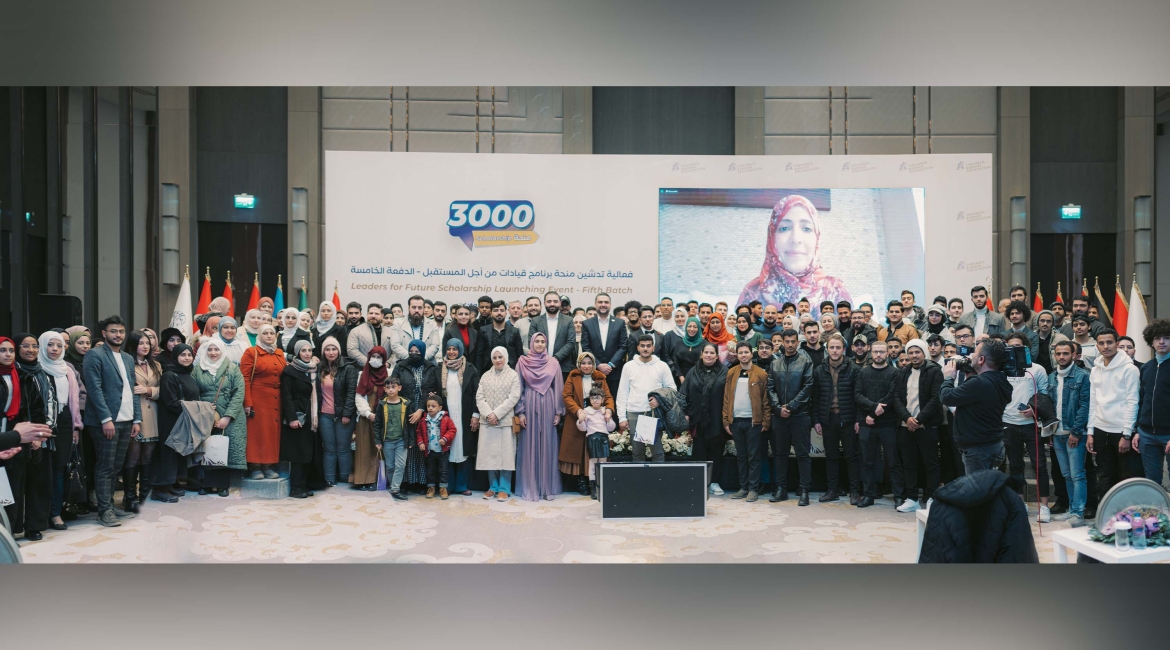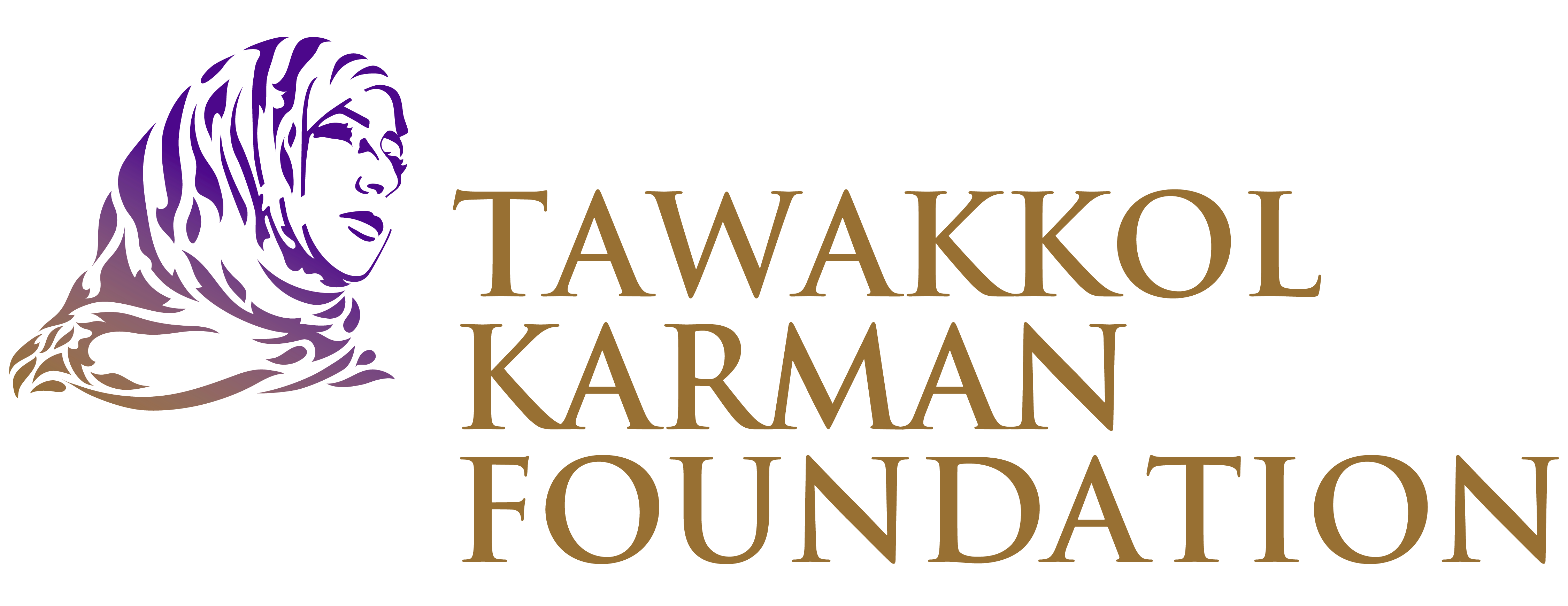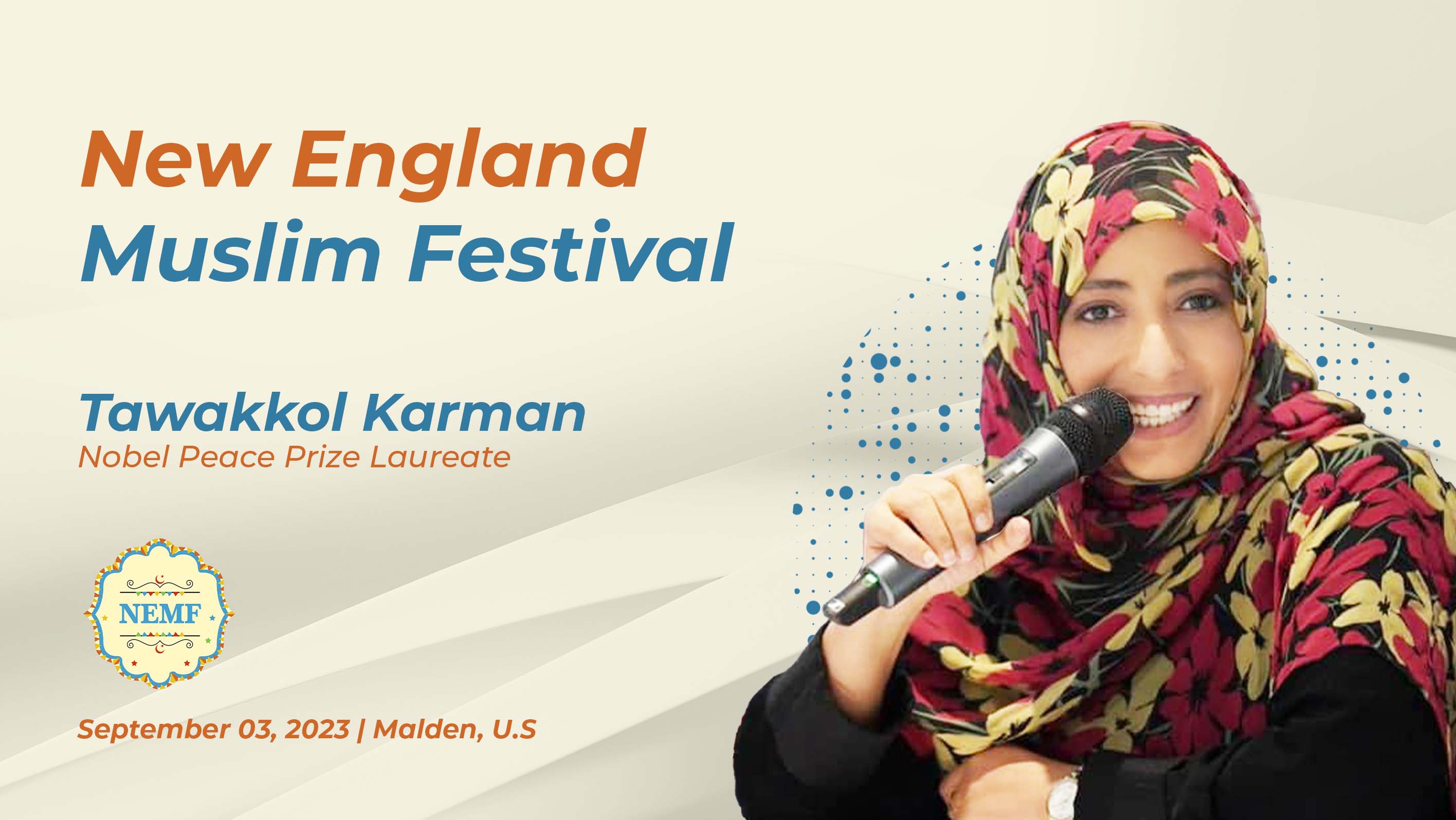Human rights activist and Nobel Peace Prize laureate, Tawakkol Karman, strongly criticized the persistent French colonial policies in Africa, highlighting their significant role as a primary cause behind the recent wave of military coups across various African nations.
During her speech at the New England Muslim Festival, Tawakkol Karman emphasized that the French colonial policies in Africa have failed to address the historical devastation and injustices inflicted upon the affected peoples, instead further impoverishing them and subjecting them to the perils of poverty and corruption.
Firmly emphasizing the need for condemnation, Karman underscored the imperative of rejecting the military coups while resolutely supporting the people's aspirations for freedom and democracy, as those who have suffered the most from foreign coups and conspiracies find it only natural to denounce both the exploitative French policies and the occurrence of military coups simultaneously.
In her address, Tawakkol Karman outlined a two-pronged mission, emphasizing the promotion of dialogue, coexistence, and unity within local communities, while also advocating for global efforts to foster humanity, integration, peace, and equitable opportunities for all.
Karman emphasized that the world should not wait for another devastating world war with millions of casualties to reaffirm its belief in peace, human brotherhood, and coexistence, while stressing the urgent need to reject violence. She highlighted that the existing history of bloody wars and escalating brutality should serve as a sufficient wake-up call for humanity to regain its consciousness.
Passionately, Karman emphasized the priority of peaceful values over weaponry and domination, highlighting the significance of establishing educational systems and a world order that reconnect with the roots of human culture and the legacies of peace-minded individuals who rejected violence while embracing progress, love, and constructive endeavors.
Interestingly, Karman observed that a history of prolonged religious disputes stems from a misunderstanding of religion's true objectives and a lack of comprehensive knowledge, with political agendas, radical figures, and certain extremist religious leaders being responsible for this distortion, as religions have been misused to further national interests and power structures instead of serving as foundations for moral principles and benevolent global impact.
As a concluding remark, Karman passionately emphasized the immediate and crucial human imperative to address conflicts, establish lasting global peace, and eliminate the roots of conflict, violence, hatred, and extremism by embracing acceptance, ethnic and religious coexistence, while fostering sustainable dialogue, embracing cultural and religious diversity, and promoting harmonious coexistence amidst varying opinions and orientations.
Here is the speech text:
In the name of Allah, the Most Gracious, the Most Merciful, who states in His Noble Qur'an:
"And among His signs is the creation of the heavens and the earth, and the diversity in your languages and colors. Surely, in that are signs for the people of the worlds" - Surah Ar-Rum (Chapter 30), Verse 22.
I commend the New England Muslim Festival and share this approach to rediscovering our shared unity within the Muslim community and fostering connections with the diverse cultures of the greater society.
Your festival is a pivotal opportunity for fostering acquaintance and discovering the multitude of artistic and cultural expressions, enriched with values of dialogue, coexistence, acceptance, and the expansion of shared spaces within our community and the broader human world we inhabit and identify with.
Such focus on highlighting the diversity and cultural richness within the Muslim community in New England will contribute to highlighting the true image of Islam, developing spaces for dialogue and cultural interaction, and enhancing social integration between New England Muslims and the diverse communities with which they coexist in a large and diverse society in its cultures, arts, education, and beliefs.
The cultural and artistic festival creates an opportunity for multiple groups to learn about the diversity of Islamic culture, while also providing a chance for others to appreciate its beauty, richness, and human diversity, thus enhancing overall integration among individuals and their relationships with both one another and the wider community.
This festival raises awareness of the value of dialogue in preventing intolerance, while highlighting the intellectual and cultural richness from within your Islamic society and embracing cultural diversity in the broader society; it also showcases the diversity of your artistic and cultural heritage, creating a shared space that encourages mutual and open dialogue.
The Muslim community in New England is composed of different languages, literary, artistic, cultural and knowledge heritages. This society is entitled to equal opportunities and participation in the wider formation of community life.
The cultural diversity within your community, highlighted through your cultural and artistic festivals, represents a positive effort towards revalorizing Islamic culture, while also contributing to the integration of diverse cultural and ethnic groups within the Muslim community in New England.
I have optimism and confidence that effective communication, cultural dialogue, and engaging cultural events will lead to a significant positive change, bridging the gaps between different cultures and providing opportunities for enhanced integration and the creation of shared spaces with others.
Amidst the prevailing divisions and the expanding global phenomenon of a lack of mercy and forgiveness, with the resurgence of radical conflicts, the specter of major wars threatening the world, and the emergence of exclusionary cultures seeking to reject and uproot the other, there remains a glimmer of possibility for a different reality.
The mobilization of hate campaigns driven by racist and exclusionary policies has a detrimental impact on numerous individuals, yet a broad cultural inclination has the potential to dissolve intentionally amplified hostilities and eliminate the hatred stemming from conflicts of interest that are exploited to incite against those with religious differences, thereby allowing cultural diversity to be perceived in these discussions as an irreparable hostility.
Muslims in New England contribute significantly to promoting creative diversity and enriching the region and America as a whole with their cultural heritage. Through festivals and events, they can challenge the misconception that Islam is incompatible with modern ideals, a perception influenced by extremist groups and discriminatory foreign policies. Extremist organizations, with their radicalism and violence, alongside major powers that have turned the war on terrorism into a platform for racial stereotyping, perpetuate a narrative that conceals their underlying racism against Islam.
Islam declares the universal brotherhood of humanity, stating that all people, irrespective of their beliefs, colors, or languages, share a common origin, as emphasized by the Prophet Muhammad's statement that "All of you are descendants of Adam, and Adam was created from dust," thereby rejecting any superiority based on ethnicity and emphasizing equality and peaceful coexistence among individuals of diverse origins and backgrounds.
The Islamic faith affirms that the Creator, glorified be He, created humans not for animosity, conflict, or oppression, but for the purpose of knowing one another, reconciling differences, and assisting one another, as Allah states in the Qur'an: "O mankind, indeed We have created you from male and female and made you peoples and tribes that you may know one another. Indeed, the most noble of you in the sight of Allah is the most righteous of you. Indeed, Allah is Knowing and Acquainted."
In every society, including yours, the importance of dialogue, coexistence, and cultural integration as fundamental human needs is emphasized, as individuals come together, bound by their shared humanity, regardless of their diverse beliefs, cultures, and affiliations.
In our current context, our mission is twofold: within our local communities and globally, we strive to convert the necessity for dialogue and coexistence into a cohesive fabric that binds societies together, promoting humanity, fostering integration, peace, and ensuring equitable opportunities for all.
The world should not endure another global conflict resulting in immense casualties and suffering to reaffirm its belief in peace, human brotherhood, coexistence, and the imperative of rejecting violence. The existing history of devastating wars and escalating brutality should serve as a stark reminder for humanity to reawaken its conscience and prioritize peaceful resolutions.
Achieving this necessitates the establishment of educational systems and a new world order that prioritize peaceful values over weaponry and domination, and entails reconnecting with the roots of creative human culture and the legacies of those great individuals who rejected violence and war, instead exemplifying sophistication, love, and the path of construction, progress, and peace.
Humanity has had protracted religious disputes throughout history, partly as a result of a fundamental misunderstanding of the true aims of religion and the thorough study of knowledge. Political agendas, radical political figures, and regrettably some extremist religious leaders are to blame for this aberration. It reflects a turn away from religions' real goals and principles, which are designed to be sources of goodness for people. Instead, religions have been misused to advance the goals of nations and their power structures across the world. This is contrary to God's intentions, who wanted religions to serve as a foundation for moral principles and to improve and benevolently impact the world.
There is an immediate and crucial human imperative to address conflicts and establish lasting peace worldwide through embracing acceptance, ethnic and religious coexistence, thereby eliminating the roots of conflict, violence, hatred, and extremism. Achieving this relies on fostering sustainable dialogue, embracing cultural and religious diversity, and promoting coexistence amidst varying opinions and orientations.
In our current times, there is an urgent and heightened necessity to establish platforms that promote dialogue and foster connections, enabling a deeper understanding of the profound, diverse, and creatively rich Islamic culture. By showcasing our culture, we can provide others with an opportunity to acquaint themselves with who we truly are.
By showcasing and embracing the cultural and artistic diversity within our heritage, we can bridge communication gaps, promote dialogue, and foster unity in the face of racial prejudice. This enriches the cultural and artistic life within the Islamic community and the broader society, which comprises diverse cultures, arts, and beliefs. Art serves as a catalyst for cultural change and expands the scope for dialogue with others. Through engaging in arts and cultural events, we can enhance participation, exchange perspectives on diverse cultural and artistic heritage, and cultivate a culture of coexistence, dialogue, and acceptance of others. You should engage in a multiple dialogue for the betterment of your community and the larger society around you.
Embark on a profound dialogue with the aim of fostering unity, cooperation, and coexistence. These profound concepts hold significant implications that revolve around fully acknowledging the other person, being fully prepared to coexist with them, accepting them, and defending them when necessary.
Let tolerance and coexistence be your chosen path and approach, reflecting the true message of our Islamic religion, evident in its texts, diverse cultural heritage, and the historical prosperity and global impact achieved when diverse cultures coexisted within the Islamic framework. Religions have emerged with the objective of promoting peace, fostering human brotherhood, and benefiting humanity, and it is imperative that we reassess this message by means of our actions, cultures, and arts, which highlight our shared human heritage and the inherent values that establish coexistence, tolerance, and acceptance of others.
Finally, and in the name of the Arab Spring revolutionaries and their ethical struggles, let me, my dear friends, firmly denounce the ongoing French colonial policies in Africa. These policies have served as a primary cause for the current wave of military coups sweeping across African nations, disregarding the historical devastation and injustices inflicted upon these peoples and further depleting their resources, subjecting them to poverty and corruption. Consequently, it is essential for us to condemn both these military coups and the exploitative French policies, while consistently supporting the aspirations and democratic choices of the people. Those of us who have suffered the most from coups and external conspiracies find it only natural to express our condemnation towards both the exploitative French policies and the occurrence of military coups.




